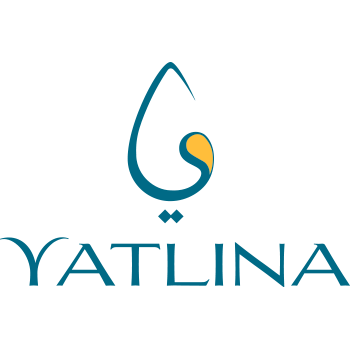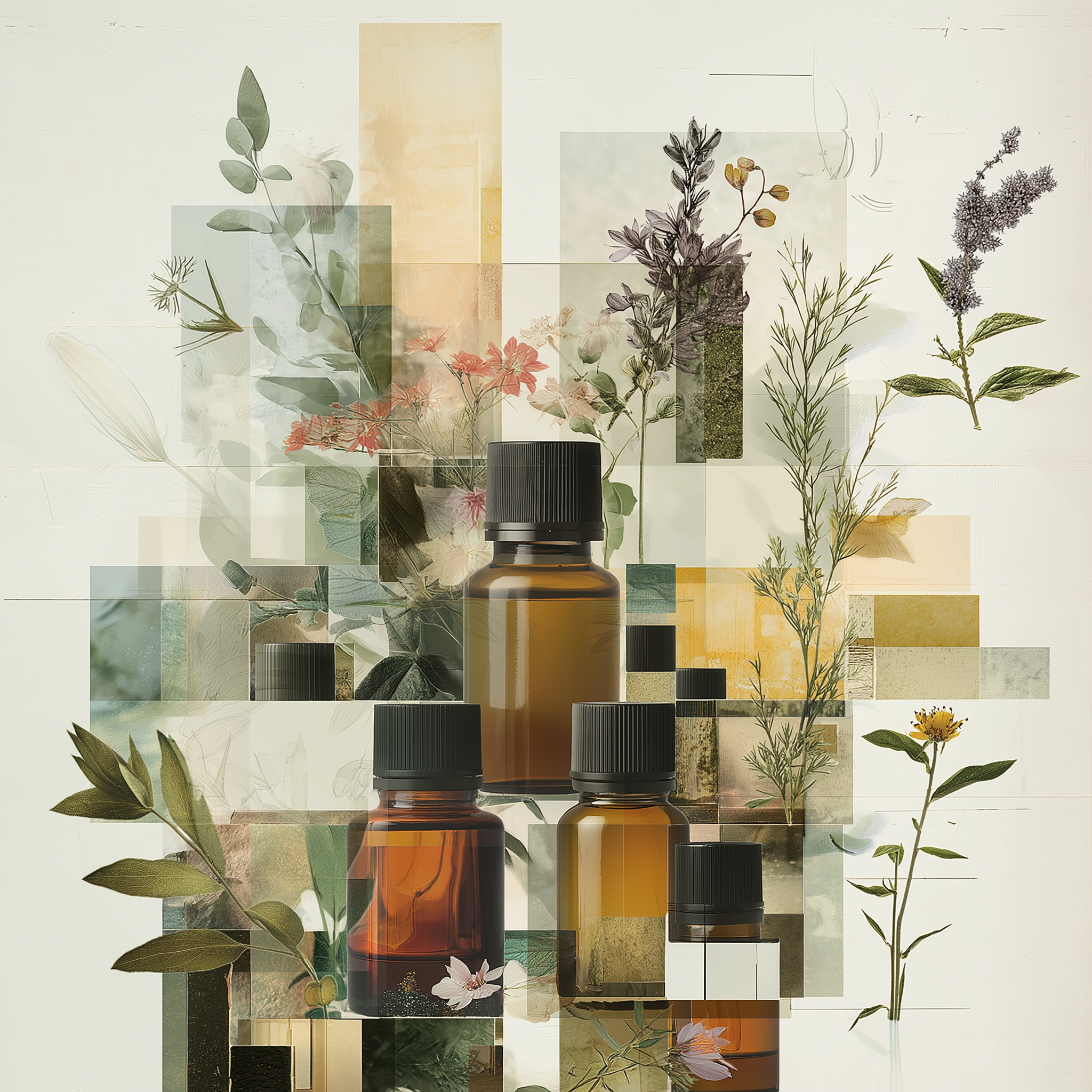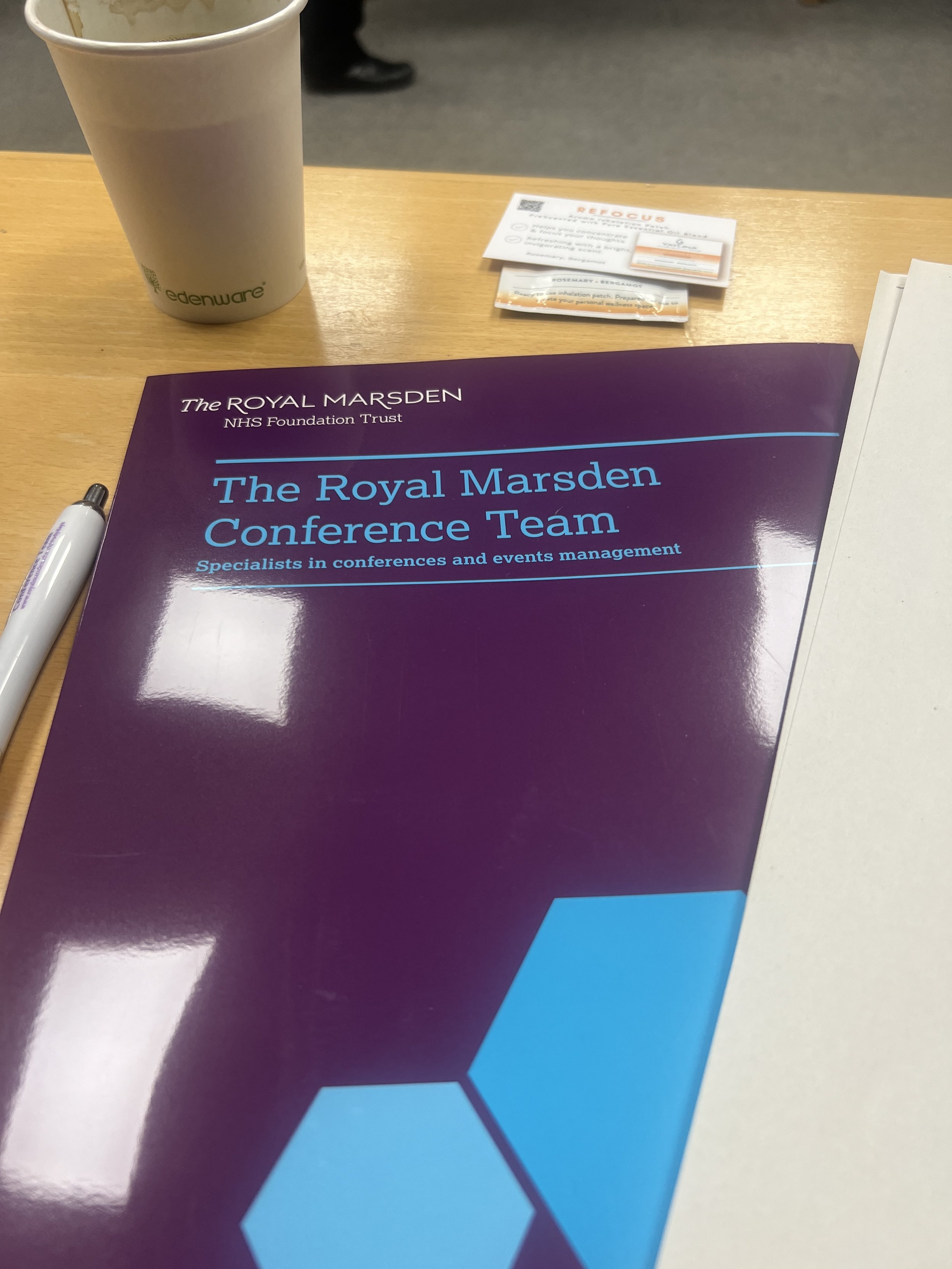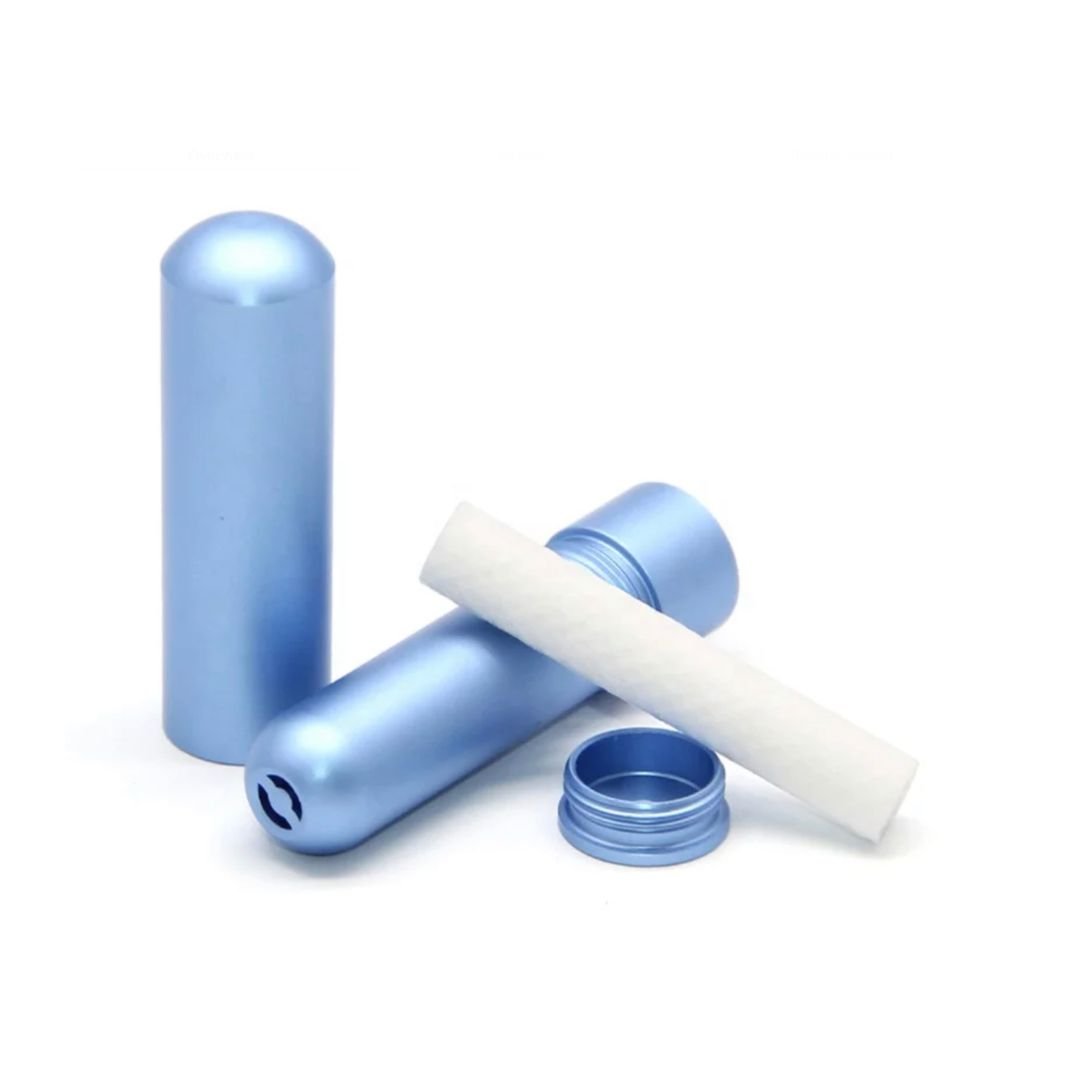Aromatherapy in Cancer Care: Benefits of Personal Inhalers & Aroma Patches for Patients
Supporting Cancer Care with Aromatherapy: A Holistic Approach for Patients and Healthcare Workers
World Cancer Day, observed annually on February 4th, is an important reminder to raise awareness about cancer and the critical need for comprehensive care. While medical treatments are fundamental, cancer care encompasses much more than just procedures and medications. It includes emotional support, symptom relief, and holistic care. One such complementary therapy gaining momentum is aromatherapy. With solid research backing its benefits, aromatherapy offers both immediate and long-term support for cancer patients, and it is also valuable for healthcare professionals dealing with the stress of cancer care.
Aromatherapy in Clinical Settings: Proven Benefits for Cancer Patients
Aromatherapy, the therapeutic use of essential oils, offers various benefits for cancer patients. Research has demonstrated that essential oils can help alleviate common side effects of cancer treatment, such as anxiety, nausea, pain, and fatigue, thus improving patients' quality of life.
Anxiety and Stress: Anxiety is a common emotional response to a cancer diagnosis, and aromatherapy can play a key role in reducing emotional distress. Essential oils like lavender, bergamot, and chamomile are particularly effective. A meta-analysis published in Complementary Therapies in Medicine found that aromatherapy—especially with lavender—significantly reduced anxiety levels (Lee et al., 2013).
Nausea and Vomiting: Chemotherapy-induced nausea and vomiting (CINV) are well-known and distressing side effects of cancer treatment. Essential oils like peppermint and ginger have shown effectiveness in reducing these symptoms. A review in Supportive Care in Cancer highlighted the role of peppermint and ginger oils in alleviating CINV when inhaled (Asher et al., 2019).
Pain Relief: Aromatherapy can also provide relief from cancer-related pain. Lavender, rosemary, and clary sage oils are commonly used for pain management. Research has demonstrated that aromatherapy massage using oils like lavender and marjoram can help reduce pain perception (Agarwal et al., 2015).
Improved Sleep: Many cancer patients struggle with sleep disturbances. Lavender oil has been shown to enhance the quality of sleep, which is vital for recovery. Studies confirm that lavender helps to relax both the body and the mind, promoting better rest (Cochrane et al., 2015).
Fatigue Reduction: Fatigue is a common issue for cancer patients. Oils like rosemary and eucalyptus can help combat this by increasing alertness. An Evidence-Based Complementary and Alternative Medicine study found that rosemary improved fatigue symptoms in breast cancer patients (Rama et al., 2020).
Yatlina Aroma Patches in clinical use
Aromatherapy has made its way into clinical practice, with promising results in supporting cancer patients. Yatlina Aroma Patches are currently being used in several NHS hospitals and hospices to help patients manage symptoms like anxiety, nausea, and fatigue.
The patches are part of two separate studies evaluating the effect of aroma patch use and the inhalation of essential oils on patient well-being. These studies aim to provide further evidence for the benefits of incorporating aromatherapy into patient care. As the official distributor of Yatlina Aroma Patches in the UK, I’m proud to offer these innovative tools to healthcare providers, empowering them to enhance their patients' quality of life through natural, soothing interventions.
Aromatherapy’s Impact on Healthcare Professionals
While the benefits for patients are well-established, aromatherapy also supports healthcare professionals working in high-stress environments. The pressure of caring for cancer patients can lead to emotional exhaustion and burnout. Aromatherapy offers a simple and effective way for staff to reduce stress, enhance focus, and improve emotional well-being.
In a study by Naczk et al. (2019), aromatherapy with lavender and bergamot oils was shown to reduce anxiety and improve the overall emotional well-being of healthcare workers. This simple, non-invasive therapy helps staff cope with the demands of their roles and provides them with the emotional resilience needed to perform their best.
The Role of the Royal Marsden and Similar Institutions
Institutions like the Royal Marsden are pioneers in integrating complementary therapies into cancer care. By offering aromatherapy as part of their holistic care model, these hospitals address patients' physical and emotional needs, offering relief from distressing symptoms and promoting a sense of comfort and well-being.
I've experienced first-hand the Royal Marsden’s commitment to evidence-based complementary therapies. Having attended their aromatherapy series in the past, I’ve gained valuable insights into the therapeutic use of essential oils in clinical settings. This year, I’m looking forward to attending again and continuing to learn from experts in the field.
The Benefits of Aromatherapy for Cancer Patients: Emotional and Physical Impact
The impact of aromatherapy on cancer patients is profound. Emotionally, it provides relief from stress and anxiety, fostering a sense of calm and relaxation. Physically, aromatherapy helps alleviate symptoms like nausea, pain, and fatigue, which can significantly affect a patient's ability to tolerate treatment and manage day-to-day life.
By addressing emotional and physical needs, aromatherapy helps improve cancer patients' overall quality of life. Its soothing, noninvasive nature makes it an appealing option for those seeking to complement traditional cancer treatments.
Financial Implications of Aromatherapy in Healthcare
Beyond its benefits for patient care, aromatherapy can offer financial advantages for healthcare systems. Aromatherapy may reduce the need for additional medications to manage symptoms such as anxiety, nausea, and pain, ultimately lowering the cost of care. Additionally, by improving symptom management and enhancing patient comfort, aromatherapy can help reduce hospital admissions and length of stay, leading to cost savings for healthcare providers.
A study by Choi et al. (2020) demonstrated that integrating complementary therapies like aromatherapy can enhance patient satisfaction and potentially reduce the use of pharmaceutical interventions, contributing to overall savings for healthcare systems.
The Royal Marsden’s Aromatherapy Courses: Learning from Experts
The upcoming Essential Oils Series 2025 at The Royal Marsden is a fantastic opportunity for anyone interested in expanding their knowledge of aromatherapy in clinical settings. Led by the highly experienced and respected Rhiannon Lewis, these courses are designed for complementary therapists seeking to enhance their practice with evidence-based aromatherapy techniques.
Rhiannon has been a prominent figure in clinical aromatherapy since 1989, and her work demonstrates a commitment to safe and effective practices. The courses in the Essential Oils Series focus on linking research to practical application, aiming to improve the quality of life for cancer patients through the use of essential oils.
The courses offered include:
Essential Oils Two-Day Introductory Course: This course serves as a foundation for using essential oils safely and effectively to improve the quality of life for people with cancer.
Essential Oils Aromatic Strategies for Digestive Comfort: Focused on using essential oils to manage common digestive issues experienced by cancer patients.
Essential Oils Update Day is an event for aromatherapists who have completed the introductory course. It offers an opportunity to discuss new developments and changes in practice.
Essential Oils Skin Course: This course explores how essential oils can support skin integrity for cancer and palliative care patients.
If you're passionate about integrating aromatherapy into cancer care, these courses are invaluable.
Special Offer: A Gift of Calm for February
In honour of World Cancer Day, I’m offering a special promotion for February. For any personal inhaler purchase, you’ll receive 20% off; no voucher or unique code is needed. This offer is available throughout February and is perfect for anyone looking to incorporate aromatherapy into their daily routine or healthcare practice.
Holistic approaches to cancer care
Aromatherapy is a powerful, research-backed complementary therapy supporting cancer patients and healthcare professionals. By reducing anxiety, managing pain, alleviating nausea, improving sleep, and combating fatigue, aromatherapy can significantly enhance the cancer care experience. The Royal Marsden and similar institutions are leading the way in integrating aromatherapy into clinical settings, providing patients with a holistic, evidence-based approach to care.
Don’t miss the chance to attend the Royal Marsden’s Essential Oils Series 2025, led by Rhiannon Lewis. It’s a fantastic opportunity to deepen your knowledge and improve your aromatherapy practice. And don’t forget to take advantage of my February offer—get a free bottle of Calm Drops with any personal inhaler purchase
References
Agarwal, G., et al. (2015). Aromatherapy massage for the management of cancer-related pain: A systematic review. Journal of Pain and Symptom Management, 50(3), 336-345.
Asher, G. N., et al. (2019). Aromatherapy for chemotherapy-induced nausea and vomiting: A systematic review and meta-analysis. Supportive Care in Cancer, 27(3), 983-994.
Choi, M. Y., et al. (2020). Economic evaluation of complementary therapies for cancer care. Journal of Alternative and Complementary Medicine, 26(12), 1164-1171.
Cochrane, L., et al. (2015). The effectiveness of lavender for sleep: A systematic review. Journal of Clinical Sleep Medicine, 11(7), 815-821.
Lee, J. H., et al. (2013). A meta-analysis of the effectiveness of aromatherapy on anxiety reduction. Complementary Therapies in Medicine, 21(3), 162-172.
Naczk, M., et al. (2019). The effects of aromatherapy on anxiety in healthcare workers: A systematic review. Journal of Aromatherapy, 35(3), 178-184.
Rama, M., et al. (2020). The effects of rosemary essential oil on fatigue in breast cancer patients: A clinical trial. Evidence-Based Complementary and Alternative Medicine, 2020, 3245216.







